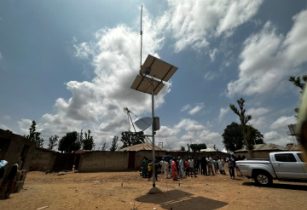UNICEF and telecom operator Airtel will partner and collaborate with 16 African countries to roll out UNICEF health and education apps for free in Africa
According to Airtel, the aim of the partnership is to improve access to health and education related information while supporting various innovative projects supported by UNICEF.
UNICEF health, education and youth focused content will be made available to Airtel customers for free across African countries, with UNICEF making its RapidPro suite of apps available on the network, added the telecom operator.
In September 2014, UNICEF had launched RapidPro, a free and open-source platform that hosts multiple apps.
Sharad Sapara, director of UNICEF’s innovation centre in Nairobi, said, “Access to information is a basic human right and is fundamental to UNICEF’s innovation agenda. Without access to information children and young people are stifled and cannot make the right decisions on matters concerning them. By improving connectivity, this partnership has the potential to empower millions of African children and youth with information and opportunities."
The partnership covers 16 countries — Kenya, Malawi, Madagascar, Rwanda, Seychelles, Tanzania, Uganda, Zambia, Burkina Faso, Chad, DR Congo, Gabon, Ghana, Niger, Nigeria and Sierra Leone.
Christian de Faria, CEO of Airtel Africa, said, “Airtel is committed to providing innovative solutions that overcome access and quality challenges around the delivery of services. Our partnership with UNICEF provides an opportunity to deploy mHealth innovations that can support healthcare systems and provide helpful education related information.”
Faria revealed that RapidPro will host apps like EduTrac and U-Report in Africa. EduTrac is a data collection system that helps schools collect and manage data on aspects such as attendance. U-Report allows anyone with a mobile phone to share their observations and ideas on a wide range of development issues.
In Zambia, U-Report has been used to link people to the resources of the National AIDS Council with SMS used to spread messages about HIV/AIDS, noted Faria.



































